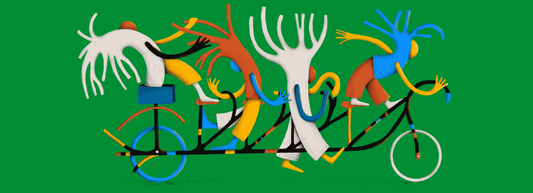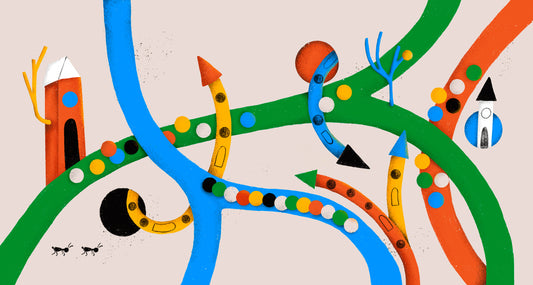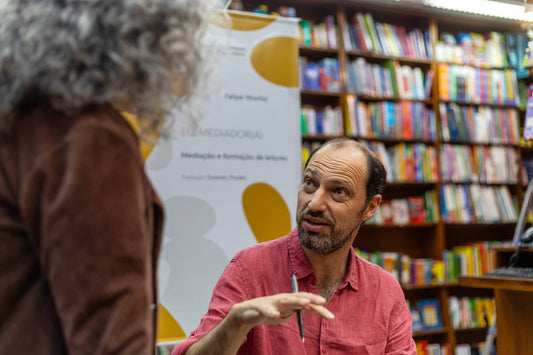Lilia Gramacho é jornalista, publicitária, psicóloga e escritora. As diversas profissões têm um ponto em comum e revelam algo sobre ela: o gosto por ouvir e narrar histórias. “O jornalismo é um jeito de contar uma história numa busca da versão real do fato; a publicidade conta histórias para nos seduzir; e a psicologia também é um espaço de narrativas e criação de narrativas. Contamos histórias para saber quem somos. Somos feitos de histórias. O que me trouxe à psicologia foi minha paixão pelas histórias, pelas narrativas íntimas, ficcionais ou de qualquer outra natureza”, afirma.
Lilia lança pela Solisluna, seu quinto livro, Que conto nos conta - A literatura inspirando a prática clínica.Resultado de pesquisas e reflexões realizadas durante os quatro anos de formação em Psicologia Analítica no Instituto de Psicologia Analítica da Bahia, associado à Associação Junguiana do Brasil (AJB) e à Associação Internacional de Psicologia Analítica (IAAP). “Podemos aprender muito sobre psicologia na literatura, porque os escritores são esses sujeitos capazes de captar a alma do inconsciente coletivo. Ao lermos podemos olhar em profundidade, um mergulho que nenhuma psicologia profunda abre mão”.
“Entendo, com certa licença poética, que todo estudo de caso é, de certa forma, um romance. Cada paciente retoma a tradição oral de contadores de histórias, recontando a vida, onde verdades e mentiras se fundem no tecido da memória”.

Os pontos de intersecção entre a literatura e a psicologia são muitos. Freud e Jung foram psicanalistas que receberam importantes prêmios literários. Ler nos ajuda a entender melhor o ser humano?
Ler literatura nos ajuda a nos entender. Muitas vezes identificamos fora, na emoção ou no dilema de um personagem, aquilo que ainda não demos corpo em palavras no nosso mundo interno. As narrativas sempre tiveram em muitas culturas o papel de cura. E ainda continua a ser um excelente remédio para a alma. Ler nos dá consciência sobre nós mesmos e o lugar que ocupamos no mundo, ela nos provoca inquietação, reflexão, nos leva ao encontro com nossas subjetividades e a outros “eu” possíveis. Ao lermos podemos olhar em profundidade, um mergulho que nenhuma psicologia profunda abre mão.
Em breve, você lança seu quinto livro, Que conto nos conta? A literatura inspirando a prática clínica, que sai pela Solisluna. Fale um pouco sobre ele.
O livro Que Conto nos Conta é resultado das reflexões produzidas ao longo dos quatro anos de formação em Psicologia Analítica no Instituto de Psicologia Analítica da Bahia, associado a AJB e ao IAAP. Esse trabalho, de alguma forma, busca mostrar o lugar de onde eu atuo dentro do pensamento analítico e na minha prática clínica. Ou seja, entendo, com certa licença poética, que todo estudo de caso é, de certa forma, um romance. Cada paciente retoma a tradição oral de contadores de histórias, recontando a vida, onde verdades e mentiras se fundem no tecido da memória. Somos um pouco o modo como contamos as nossas histórias, cada um com sua retórica. Então, nesse livro, busco aproximar, a partir dos pontos de contato, duas áreas que me são muito caras: a literatura e a psicologia. E mostrar que podemos aprender muito sobre psicologia na literatura, porque os escritores são esses sujeitos capazes de captar a alma do inconsciente coletivo.

Como o título do livro sugere, você se inspira na literatura para realizar a prática clínica. Como se dá esse processo?
Podemos pensar a literatura na prática clínica de muitas formas, a mais importante, para mim, é o quanto aprendo na literatura tanto sobre complexidade da existência humana, quanto nos livros de teoria. Portanto, ela faz parte da minha formação como sujeito e também como analista. Mas, ela também pode ser um grande farol para provocar possibilidades de novos olhares. Pois um poema, um conto, estão carregados de metáforas. E as metáforas, Meta (além) e Phorein (transportar), possuem esse poder de evocar imagens, ideias e associações, para além do pensamento racional, lógico, e, das certezas vigentes. Ela funciona como drible nas perspectivas rígidas e unilaterais, levando o indivíduo a olhar através de outras janelas, apreciando paisagens desconhecidas. São, neste sentido, instrumentos de manejo que enriquecem e transformam, pois possibilita que muitas vezes falemos de questões sem falar nas questões.
O contrário também acontece? Se baseia na prática clínica para escrever seus textos literários?
Quanto à escrita, ela é movida por uma série de fatores que se mesclam e se conectam: um evento, uma frase, uma memória, uma expressão. Sem dúvida, ser uma escutadeira de tantas vidas, estar imerso nesse mar de histórias, é inspiração, mas também pode ser transbordamento. Escrever, para mim, é sempre tatear no escuro.

Realidade Psíquica é a forma com que o indivíduo percebe o mundo e os acontecimentos, e isso é muito particular em cada um de nós. Como analisar o comportamento de um paciente, se o que ele traz são versões da sua história, dadas suas próprias vivências e observações?
O papel da análise, na perspectiva que trabalho, não é analisar, como quem vai buscar ajustes, o comportamento, mas ser um meio para que cada sujeito possa elaborar um diálogo consigo mesmo. Para a psicologia analítica, todo o sujeito é constituído de uma pluralidade de pessoas psíquicas. Ou, como prefere Fernando Pessoa, “Vive em nós inúmeros”. A maioria dos romancistas têm essa consciência de conter multidões e de que viver em legião é tenso. Todo ponto de vista é a vista de um ponto. Mas, se nos abrirmos e exercitarmos essa multiplicidade de estados subjetivos, podemos ampliar as nossas perspectivas, e deixarmos de estar fixados numa única ficção, a que chamamos verdade.
Você acredita que é possível haver histórias isentas, baseadas apenas em fatos? (E aqui falo também especificamente dessa isenção tão buscada ou dissimulada pelo jornalismo)
Epíteto dizia que o que afeta o ser humano não é o que lhe acontece, mas o que se conta do que lhe acontece. De modo que todo relato está sempre contaminado das subjetividades de quem o narra, porque somos o jeito como contamos nossas histórias. Então, se a narrativa muda, muda também o modo como vemos os eventos. O fato externo está lá (data, hora, local), mas são os eventos internos, que não estão isentos de fantasias, que compõem a verdade de cada um. Todo fato que acontece na vida real influencia a vida psíquica.
Um dos gêneros literários de maior sucesso entre os leitores, ultimamente, é a auto-ficção. Seria esse, junto com a autobiografia, o gênero que mais se aproxima da autoanálise? Escrever é também uma busca pelo autoconhecimento?
Sim, escrever pode ser um excelente exercício de reflexão e salvação. É uma possibilidade de ordenar e dialogar de dentro para fora. Libertar-se da condição, muitas vezes, asfixiante de nossa única vida. E tornar-se leitor de sua própria ficção, pode levar a outras ideias de si mesmo. “É preciso sair da ilha para olhar a ilha” nos ensina Saramago no seu belo conto ‘A Ilha Desconhecida’. Eliane Brum diz: ‘Escrevo para não morrer e para não matar’. Como ela, muitos escritores afirmam essa necessidade visceral. Rilke: ‘Fiz algo contra o medo. Fiquei sentado a noite toda e escrevi’. Escrever pode dar ao caos uma nova ordem.
Considerando que este é o seu terceiro livro editado pela Solisluna, como avalia o trabalho editorial desenvolvido pela editora?
Sou uma fã do trabalho da Solisluna. Gosto muito de quem gosta do que faz. E isso é explícito na relação com a Solisluna. Valéria, Kin, Enéas são mais do que editores competentes, se tornaram amigos, fazem parte dessa tribo de amantes de livros do qual pertenço. Uma parceria que se estabelece com premissas que me são muito caras: respeito, transparência, competência, diálogo e muito, muito afeto.
Livro Que conto nos conta
ISBN: 9786586539950
Apresentação: Sara Bertrand






